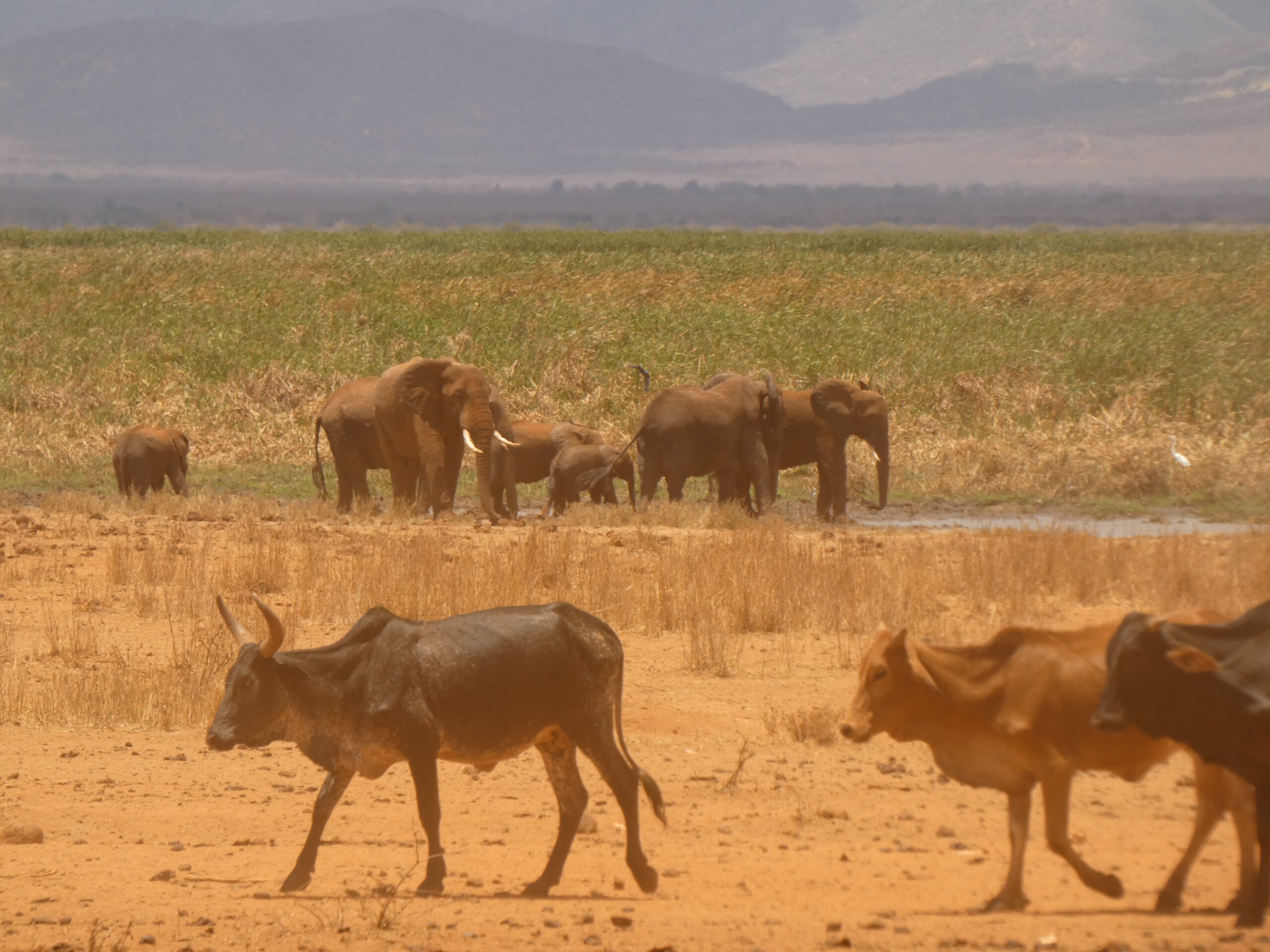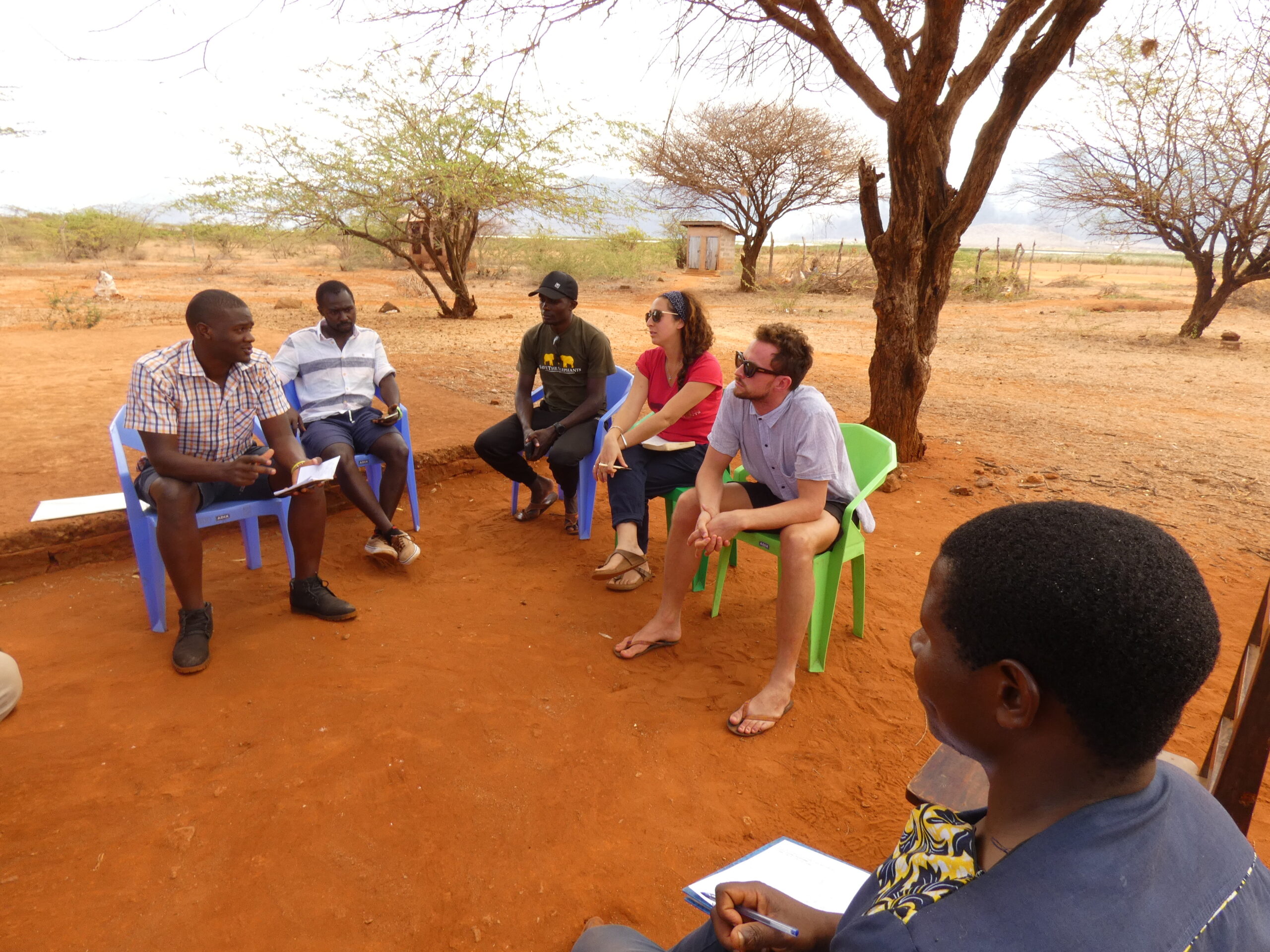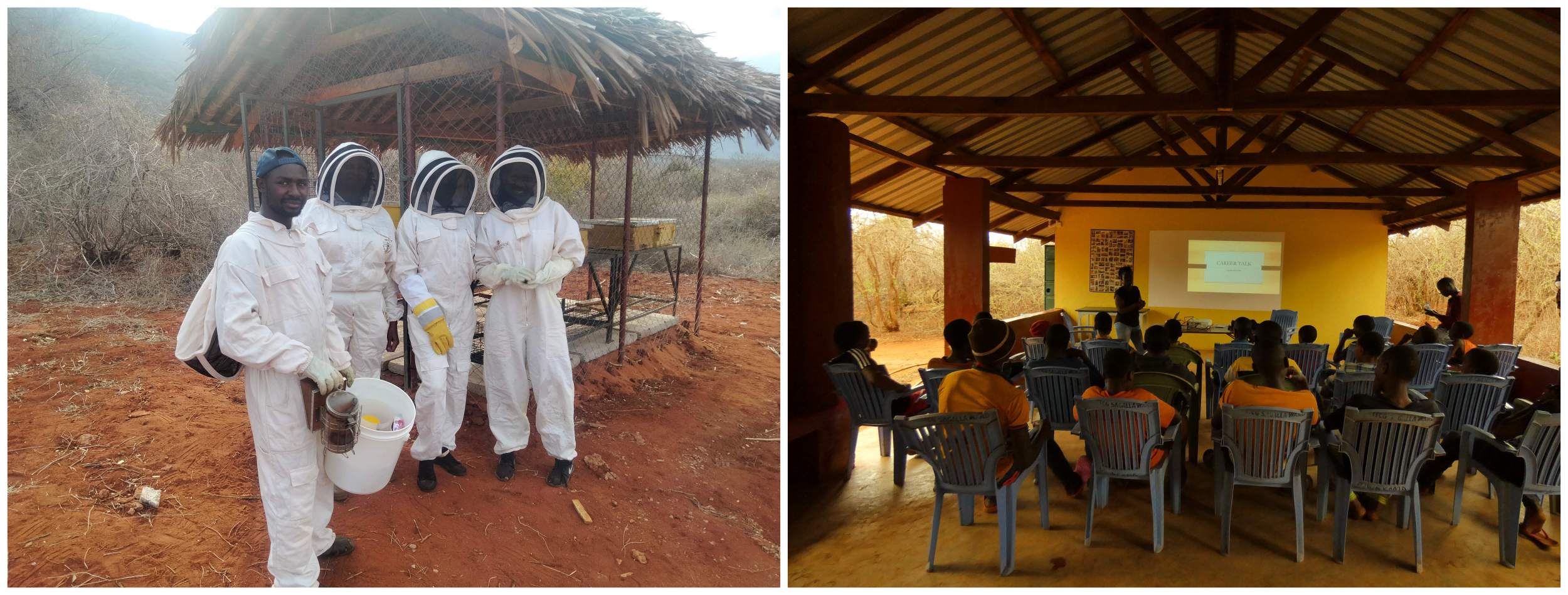Towards long-term coexistence of humans and wildlife: peace and harmony in Lake Jipe
By Cidee Despi
Zacharia Mutinda Muteti wants to see human and wildlife coexisting in peace and harmony, so he decided to pursue a project to help with just that. Learn how this young advocate is helping a community create sustainable livelihood in Eastern Kenya.

Photo by: Zacharia Mutinda Muteti
Human-elephant coexistence is a significant issue that affects Kenya and Africa as a whole. Elephants, afterall, are seen to be important to the economic development and conservation efforts of the region. However, in recent years, the area has witnessed a drastic decrease in elephant population, largely due to poaching and other human activities.
With that, it becomes imperative to strengthen the quality of conservation surrounding human-elephant coexistence—an objective that one of our EXCELerator 2021 graduates, Zacharia Mutinda Muteti (Zak) aims to accomplish.
As a resident of Machakos county, Eastern Kenya, Zak feels passionately for the general welfare of the wildlife. He in fact is so passionate that he decided to pursue his Masters in Environmental Studies and become a wildlife researcher.
Early in his career, he had the opportunity to work in the South part of Kenya, where he lived among a community of farmers. He took that to be a pivotal moment as it exposed him to the realities of human-elephant coexistence. He saw that, as part of the people’s livelihood and day-to-day survival, elephants’ lives were threatened through land use conversion and habitat loss..
Zak’s experience with the community is not at all unique to the entire African region. As the IUCN reported in 2016, Africa’s elephant population had seen its worst decline in 25 years, mostly as the result of intensified poaching for ivory. In 1930, there were an estimated 10 million elephants roaming around the African continent. By 2018, there were only 415,000 with only 34280 in Kenya (KWS 2022)—a staggering drop in numbers that have prompted wildlife advocates like Zak to act.

When Zak joined the 2021 EXCELerator, he had the desire of working on his project focusing on human elephant coexistence and developing an assessment for alternatives for crop farming around Lake Jipe, Southeastern Kenya. His project had three aims to assess three things: (1) knowledge on beekeeping and set up an apiary in each village; (2) knowledge and expertise in fishing and training fishermen on best practices; and (3) attitudes towards elephant impacts after training community leaders on apiculture and aquaculture. While he was initially introduced to the idea of the project because of elephants specifically, his aim is to focus on large problem animals—or animals that have verified documented history of attacking humans—in general.
Through the EXCELerator, Zak learned the technical skills needed to succeed in his pursuit. “CoalitionWILD has just surpassed my expectations from the first day,” he reported. “I was committed to do it because I really needed it. I definitely had goals but did not know how to put them into action.” Zak realized that environmental work goes beyond what is taught inside classrooms; it requires technical rigor, collaboration, and undying passion as well.
With the skills Zak learned during the program, he was able to successfully start his work on his project last July 2022. He had spent his time traveling and assessing the area and meeting with the local leaders. He shared that he has more confidence now to work on his project because of the project management aspects he learned from the EXCELerator webinars, such as the ones on creating goals and writing timelines.

Zak is excited to see his project progress. When asked about his vision for his work, he said that his primary aim is to see behavior change. “[I want] for humans to stop the animosity towards these animals and adopt a way that is peaceful and adaptable from one generation to another, without affecting other people from society,” he shared.
Zak dreams of an Africa with coexisting human and wildlife populations. He is committed to continuing the work on this front because, as he shared, we have not much choice. “It is a fact that we have to coexist,” Zak said. “We do not have an exit plan. They were here before us. These animals do not have an alternative to live. In many situations, we even rely on them and the environment.”
When asked about his plans as the EXCELerator concluded, he said that he plans to continue keeping in touch with the rest of the cohort as the community has been amazing to him. Meanwhile, on his project, he plans to create a monetary strategy for the next 24 months. In 2 years time, he hopes to see the community he is working with adapt sustainable livelihoods that do not aggravate human-wildlife coexistence.
Zacharia Mutinda Muteti is a graduate of the 2021 EXCELerator cohort. Learn more about the program here. The 2022 EXCELerator is accepting applicants until 07 October 2022. Register: https://bit.ly/2022EXCELerator.


